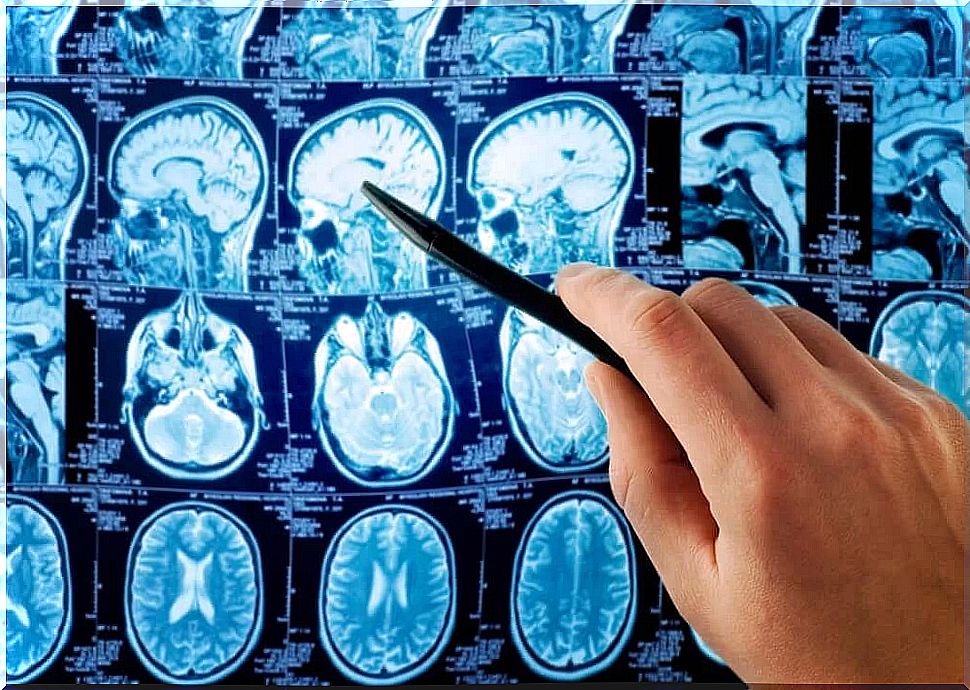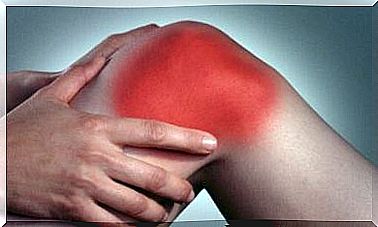Ramsay Hunt Syndrome: What Is It?
Ramsay Hunt Syndrome is one of the main causes of peripheral facial paralysis. It can also cause other symptoms, such as: B. Hearing loss or dizziness. We’ll explain it to you.

Ramsay Hunt syndrome is a consequence of the chickenpox virus. It encompasses a range of symptoms and signs that occur because this viral pathogen affects certain nerves. More precisely, the facial nerve.
The facial nerve contains motor and sensory fibers. It triggers stimuli in different parts of our face, so that gestures such as B. with eating and speaking helps.
Ramsay Hunt syndrome can cause facial paralysis and hearing loss in the ear on the same side. It is a relatively common disease. That’s why we explain everything you should know about it.
What is Ramsay Hunt Syndrome?
Ramsay Hunt syndrome is one of the diseases that can be caused by the varicella zoster virus (chickenpox). The VZV belongs to the herpes virus family.
According to an article published in the Annals of Internal Medicine , Ramsay Hunt syndrome consists of paralysis of the facial nerve. In addition, it is often accompanied by vesicular rashes in the auricle or even in the mouth.
It is the second leading cause of peripheral facial nerve palsy. In fact, it accounts for 7% of the total. This is due to the fact that varicella zoster virus infection is very common in the general population.
Another study published in Medicina de Familia SEMERGEN found that this disease is very diverse. Therefore, they are usually divided into 4 stages, depending on the severity. The full form, or the one described first, includes the following signs:
- General infection syndrome, with malaise, tiredness and pain
- Rash and hearing damage
- Influencing the taste sensations
- peripheral facial paralysis
Causes of Ramsay Hunt Syndrome
Ramsay Hunt syndrome is caused by the varicella zoster virus. It occurs in people who have had chickenpox before. This is because the virus is able to dormant in the body. In particular, it usually settles in the nerve tissue.
When the virus reactivates, it causes symptoms. According to a Department of Health article, it is usually transmitted from person to person by touching the vesicles of someone who is infected.
However, it can also be spread through the air by droplets that are expelled when coughing or sneezing. The same applies to contaminated objects. However, to develop Ramsay Hunt syndrome, one must have had chickenpox beforehand.

Read more: Strengthening the Immune System: 6 Habits
Risk factors
Ramsay Hunt syndrome can occur in anyone who has had chickenpox. This is even an essential requirement for it. However, the syndrome itself is not contagious.
As with shingles, chickenpox is itself contagious when it occurs. When a person who has not had chickenpox comes into contact with another person who has Ramsay Hunt syndrome, they develop a typical rash appearance.
It is also important to know that there is a vaccine for this virus. Therefore a vaccinated person is not at risk.
The question of age is crucial. It is very rare for children to develop Ramsay Hunt syndrome. It usually only occurs in people over the age of 60. However, it can often also occur in people who have weakened immune systems.
What are the symptoms?
As we learned in the first section, Ramsay-Hunt syndrome manifests itself very differently. As explained by the specialists at the Mayo Clinic, the two main symptoms are facial paralysis and a rash. The rash usually occurs around the ear or inside the ear. There are also fluid-filled bubbles.
In some cases, the rash does not appear at all or occurs after the paralysis. There is an earache, a constant buzzing in the ear or even hearing loss.
With facial paralysis, it is difficult to close the eye on the affected side. The mouth and eyes can also be dry. This is because the facial nerve innervates glands that secrete tears and saliva.
The taste can also change. In addition, the ability to taste food with the foremost part of the tongue is lost.
Complications of Ramsay Hunt Syndrome
Ramsay Hunt syndrome can lead to long-term complications. One of the best known is post-therapeutic neuralgia. In this case , chronic pain occurs, which remains in the area where the rash appeared.
They occur because the nerve fibers are damaged by the presence of the virus. Likewise, facial sensation and hearing can be reduced or permanently impaired. However, this is less often the case.
The inability to close the eye in Ramsay Hunt syndrome can damage the eye. Particles or pathogens enter the eye and damage the cornea, which then affects vision.
How do you diagnose Ramsay Hunt Syndrome?
The diagnosis of this disease is usually made based on the patient’s symptoms and medical history. Since it is the second most common cause of peripheral paralysis, it is always important to keep these points in mind.
In addition, as a study published in the Clinical Journal of Family Medicine explains, there are a number of tests that can help with the diagnosis. The first is serology. It consists in the detection of antibodies in the blood against the varicella zoster virus.
Another test that can help is the polymerase chain reaction (PCR). In some cases, when the diagnosis is uncertain, imaging tests may also be done to rule out other causes. The most common method used is magnetic resonance imaging (MRI).

Possible treatments
Treatment for Ramsay Hunt syndrome aims to reduce the risk of possible complications and the patient’s discomfort. Because of this, the most commonly used drugs are pain relievers. They are there to reduce the pain that occurs. Sedatives can also be prescribed if you feel dizzy.
Antiviral drugs are used to prevent the virus from multiplying further. The most useful against varicella zoster virus (chickenpox) are acyclovir and valacyclovir. They can be combined with corticosteroids to make them more effective.
Ramsay Hunt syndrome is a result of chickenpox
It should be noted that this syndrome only occurs in people who have previously contracted chickenpox. It usually does not appear until years after infection, especially in the elderly.
It is characterized by facial nerve paralysis and a vesicular rash. If any of the signs are present, a doctor should be consulted immediately. Proper treatment can reduce the risk of long-term complications such as chronic pain.









